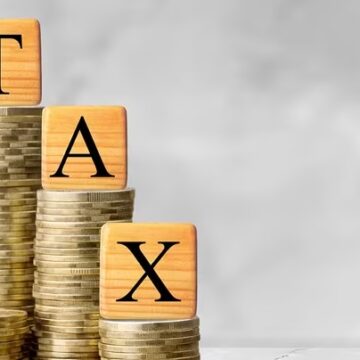A Demat account, which serves as a digital repository for holding and trading securities, has not only transformed the investment landscape but also has implications on taxation. Understanding the connection between a Demat account and taxation is crucial for investors to ensure compliance with tax laws and effectively manage their financial affairs. Here’s an exploration of how a Demat account and taxation are intertwined:
Capital Gains Tax:
One of the key aspects of taxation related to a Demat account is capital gains tax. Capital gains are the profits earned from the sale of securities, such as stocks and mutual funds. Check more on what is demat account. The tax treatment of capital gains depends on the duration for which the securities are held:
Short-Term Capital Gains (STCG): If you sell securities held in your Demat account within one year of acquisition, the resulting gains are considered short-term capital gains. STCG is subject to higher tax rates compared to long-term capital gains.
Long-Term Capital Gains (LTCG): If you hold securities for more than one year before selling them, the resulting gains are categorized as long-term capital gains. LTCG on listed securities is usually taxed at a lower rate, provided you meet certain conditions and avail the benefit of indexation. Check more on what is demat account?
Equity Taxation:
In the context of equity investments held in a Demat account, there are specific tax implications:
Securities Transaction Tax (STT): STT is a tax levied on the purchase and sale of equities in the stock market. It is automatically deducted at the time of the transaction and impacts the overall cost and selling price of shares. Check more on what is demat account?
Dividend Distribution Tax (DDT): If you receive dividends from equity investments held in your Demat account, the company distributing the dividends might have already paid DDT on your behalf. However, from a few years ago, the responsibility of paying tax on dividends shifted to the recipient (i.e., the investor), which can affect how dividends are taxed.
Tax Saving Investments:
Certain investments held in your Demat account can offer tax benefits. For example:
Equity-Linked Savings Scheme (ELSS): ELSS funds, which are a type of mutual fund, offer tax benefits under Section 80C of the Income Tax Act. Investments in ELSS funds held in a Demat account can qualify for deductions up to a specified limit. Check more on what is demat account?
Reporting and Documentation:
Taxation related to your Demat account requires accurate reporting and proper documentation:
Capital Gains Tax Calculations: When calculating capital gains tax, it’s essential to maintain accurate records of acquisition cost, sale price, and holding period for each security traded through your Demat account.
Form 15G/15H: If you anticipate that your total income for a financial year will not exceed the taxable limit, you can submit Form 15G (for individuals below 60 years) or Form 15H (for senior citizens) to your DP. This will prevent them from deducting TDS (Tax Deducted at Source) on your interest income from securities like bonds and debentures. Check more on what is demat account?
Tax Filing:
When filing your income tax return, it’s crucial to accurately report your capital gains from securities held in your Demat account. The gains should be categorized as short-term or long-term as per the holding period. You should also declare any dividends received during the financial year.
















